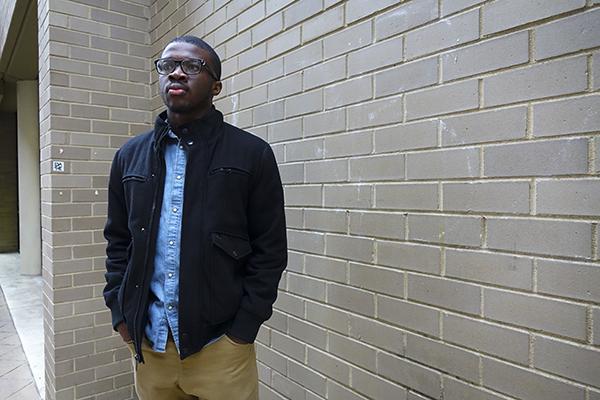Updated: Jan. 19, 2016 at 2:41 p.m.
GW students will be able to discuss topics like campus race relations with other D.C. students as part of a new city-wide student group officials aim to set up this semester.
The idea for the group came from a meeting among some D.C. college presidents and students last December about race relations on college campuses. University President Steven Knapp attended the meeting. The presidents at the time said having student input would be valuable to address racial microaggressions on campus, and GW student leaders say they think more open conversations about race on other campuses will help alleviate tension at GW.
Several students from each D.C. university will serve on the consortium to regularly talk about ways that each group can improve race relations on their campus.
The Consortium of Universities of the Washington Metropolitan Area, a group of universities in the D.C. area who convene to discuss common issues, will oversee the student version. Knapp, who became the chair of the consortium’s Board of Trustees last year, said during the December meeting that the meeting was helpful for finding ideas relevant to GW and its students and that he supports starting a student consortium.
Knapp declined to comment on specifics of the group through a spokeswoman, deferring to staff at the consortium who are spearheading the effort.
Sally Kram, the director of public and governmental affairs at the consortium, said her group was waiting for students to return from winter break before they moved forward with the program because she expects students to take the lead in planning.
“It won’t be the consortium driving this as much as the students deciding how they want to proceed,” she said.
Out of the 14 schools currently part of the consortium, Kram said she expects the nine private universities in D.C. – including American and Georgetown universities – to send student representatives to the meetings. She said the group would likely exclude the public institutions, like the University of the District of Columbia, or institutions that are part of the group but not located in D.C., like George Mason University.
“I think it’s an area of high interest, so we don’t want to be too restrictive, but on the flip side I don’t know whether it would be useful to bring together hundreds of students for this,” Kram said.
Frank Fritz, a junior who works at the consortium and is helping to organize the city-wide student group, said the student group would be “historic” because it is based on one singular national issue. He said it was important that students feel that administrators are listening to their issues at the meeting.
“Moving forward, our conversation should continue to be candid and open so that we can present an honest picture to administrators at different campuses of what concerns students have,” Fritz said.
Fritz, who was at the December meeting at Howard University, said the group discussed general ways to diversify the D.C. campuses, something that could apply to GW and other schools.
“I think right now it’s too early to say what will come out of these meetings but we hope that the conversation will continue,” he said.
Student Association President Andie Dowd, who also attended the December meeting, said she hasn’t gotten an update on the idea since the meeting last month, but said she will discuss it with Knapp during their next monthly meeting.
“I’m a huge proponent of it,” Dowd said. “I’m definitely interested in talking to him about it.”
Leslie Ogu, the president of the Black Student Union, said it would be important for the students to have potentially uncomfortable conversations on race so that they can begin to address any existing racial biases.
Ogu added that while he would like to be part of the student consortium, he thinks that students in the new consortium may not have the time to fully educate their respective student bodies about improving campus climates after each meeting .
He said though there are diverse groups of students at the universities in the consortium, the issues on race could be relevant to students in all of them. He said he thinks the student consortium could be helpful in preparing students for interactions with others after graduation, and to generally become more aware.
“There are students on diverse campuses that are dealing with the same issues,” he said.
Liz Provencher and Robin Eberhardt contributed reporting.








